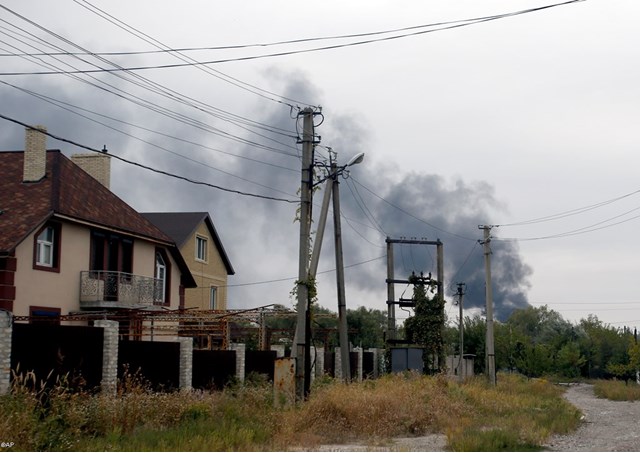
Ukraine, rebels withdraw artillery

(Vatican Radio) Ukraine's government says its forces and pro-Russian separatists have begun withdrawing heavy artillery in the east of the country as part of efforts to implement a still shaky ceasefire. The withdrawal comes amid pressure on Ukraine's president and concerns that the country will receive less support from a key ally.
Listen to the report by Stefan Bos:
Ukrainian officials said government forces began withdrawing from frontline positions Monday; pro-Russian separatists were also seen removing heavy artillery.
Yet, Ukraine's National Security and Defense Council acknowledged that the withdrawal of heavy weapons by the rebels was "not as massive as expected".
Creating a buffer zone is seen by both sides as crucial to implement a ceasefire agreement signed September 5, following several deadly violations.
Additionally, Ukrainian President Petro Poroshenko has been defending a new law, rushed through Parliament, which gives limited self-rule and an amnesty to pro-Russian separatists.
NO MILITARY MEANS
He told journalists these efforts are the only way to bring an end to the conflict that has killed more than 3,000 people.
“I underline that it is impossible to win the war in the cities of Luhansk and Donetsk using only military means,” Poroshenko said. “The more Ukrainian army battalions or brigades are brought up there, the more troops there are from the Russian Federation.”
Moscow has denied sending troops or military equipment to support the rebels.
Poroshenko's remarks came while reporters saw smoke rising over a neighborhood in the rebel stronghold of Donetsk, underscoring the difficulties to reach peace.
Diplomats have also expressed concern that Ukraine will receive less support from a key ally, Poland.
LESS EXPERIENCE
The neighboring country's last cabinet was backing Kiev's pro-Western reforms and called for sanctions on Russia to punish it for its perceived aggression in eastern Ukraine.
However, critics say Poland's new government, sworn in Monday, lacks the same stature and experience.
And with only one year before the next election, Prime Minister Ewa Kopacz and Foreign Minister Grzegorz have little time to build on what analysts view as the strong profile of their predecessors.
When asked whether she would support sending weapons to Ukraine, Kopacz said her nation should act as "a reasonable Polish woman" and focus on home and hearth instead.
Under previous Prime Minister Donald Tusk and Foreign Minister Radek Sikorski, Poland had lobbied for sanctions on Russia and for NATO to do more to protect their nation.
| All the contents on this site are copyrighted ©. |


